Back in March, FISV brought founders from across our portfolio together in London for our inaugural Founders Summit. It was a day to reflect on collective achievements, build alliances and share learnings from across the scale-up journey.
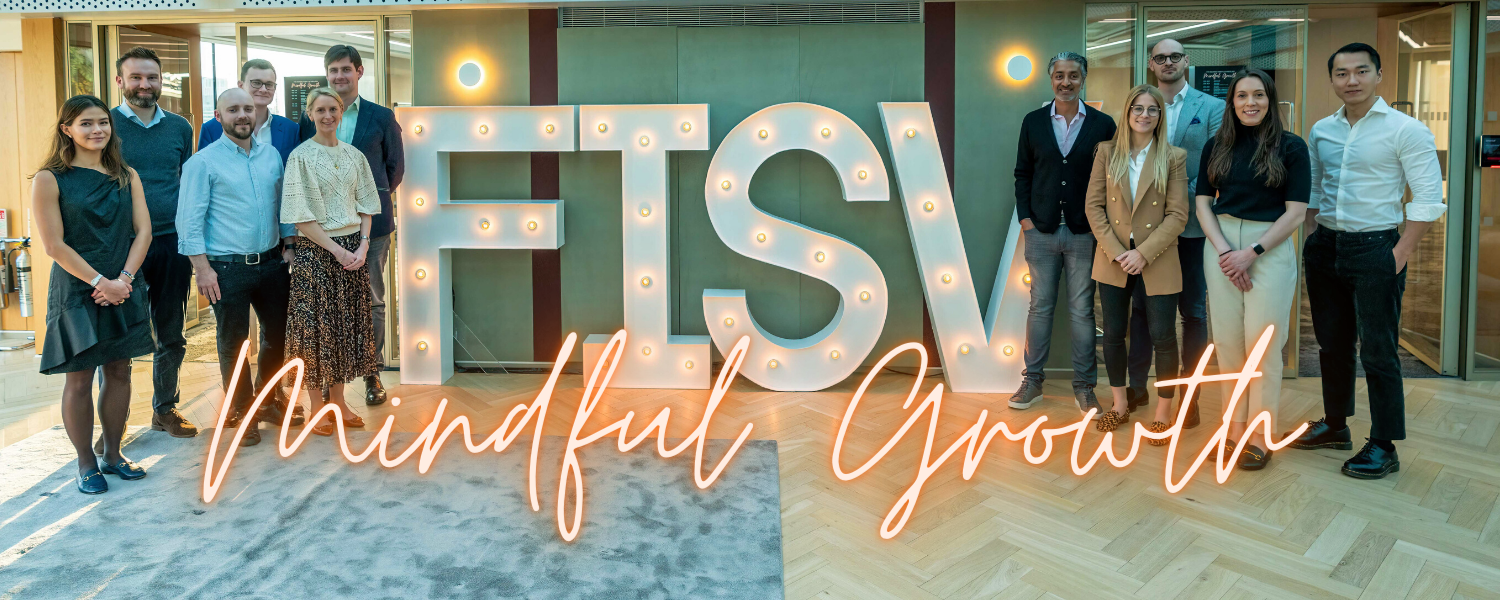
Certainly, the FISV portfolio has evolved tremendously over the past few years. Today, not only are there several intra-portfolio collaborations, but also half of our portfolio companies are now in partnership with Fidelity International.
We are more confident than ever in the ecosystem we are building and against this backdrop of evolution, we chose the theme of Mindful Growth this year in recognition of how all too often in the venture capital world, the focus is on Growth without consideration of how to make that growth sustainable. We know growth at all costs quickly leads to unconscious decline and recognise that for founders, the pressures imposed by investors, market dynamics and the responsibilities of leadership are too often incredibly tough to navigate.
With that said, here is a quick overview of our top takeaways from each session:
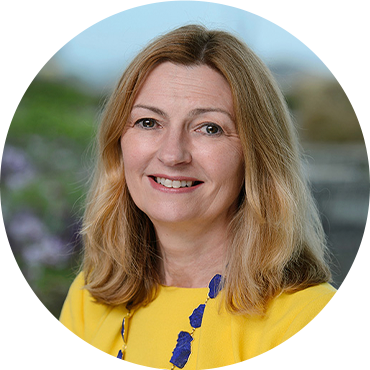
Opening remarks
With Anne Richards, CEO of Fidelity International
- Growth often feels quite binary – when it’s going well, it feels unstoppable and easy, and when it’s not going well it feels remarkably difficult to find any at all
- True leaders don’t believe all the hype that comes with success and are not crushed by failure; that resilience is what keeps you going in good times and bad
- GAMP not GAAP - There has been a meaningful change in the standards to which businesses are being held. Growth at any price – GAAP – is no longer acceptable. Growth has to be mindful of more than just the pursuit of profit. It must be achieved after societal costs and impacts are considered. Perhaps we should call it GAMP – growth at a mindful price.
- Growing as a leader requires intentional change: You may very well have found your first success as a business leader BECAUSE of your technical expertise. But to grow successfully, you may have to learn to leave some of that behind
- Avoiding unconscious decline - It’s important, as a leader, to remember that obsolescence is a possibility. Survival is never a given – not for the largest company, nor for the smallest.
- Being founder-led is a major competitive advantage, it means there is an emotional connection with your business, a desire for it to be successful that transcends the purely financial reward.

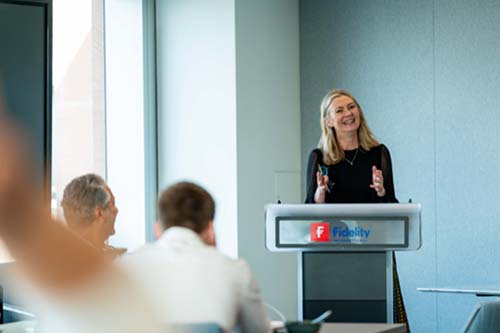

Marketing: A Personal Perspective
With Jalin Somaiya
- Consider the marketing funnel in relation to the whole purchase journey
- In fintechs, especially B2B and B2B2C, focusing on the upper and upper-mid funnel tends to provide the greatest ROI and opportunity for upside
- Weakest points are typically related to Awareness (‘the upper funnel’) and the website (the ‘upper mid-funnel’) yet many companies systematically neglect their websites in favour of spending time and dollars at other points of the funnel and this is a mistake
- Marketing teams should approach their mission much like product teams using roadmaps to prioritise and sprints to deliver
- “80% of CEOs don’t trust or are unimpressed with their CMOs” - Why CMOs never last – HBR (2017) – much of the failure comes from a confusion of roles and metrics covering different objectives
- Marketers are currently in high demand and the talent pool is thin. CEOs should relate the role to the critical points in the funnel with the most upside. Be prepared to compromise and to pay over the odds for someone great.
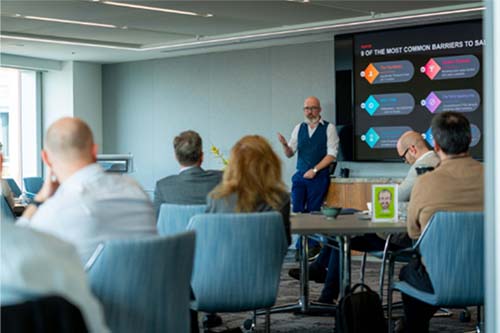

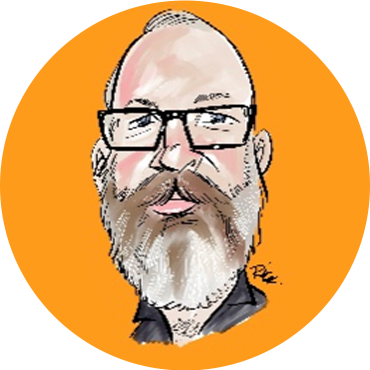
Sales and the Enterprise Journey
Eamon O’Dwyer shared his thoughts on the 9 common barriers to sales in fintechs including:
Series A ‘Kool-aid’
It is easy to mistake early sales traction with sales scalability. A great product does not sell itself so investing in building the sales function early is important
The blind leading the…
Unexperienced executives hiring and designing sales functions. Founders who are brilliant at building tech solutions and products are not necessarily best placed to hire, onboard and manage great sales teams. Find people who have done it before to advise and support.
NPD & new segments
Product and market expansion pre scalable MQL and SQL function in place. Founders need to keep focus and discipline, not get distracted by the next revenue opportunity
Hiring for culture
Hire and manage for performance over ‘fit’. The best predictor of success is having been there and done it before with similar customers and ACVs. Without performance, there is no culture…
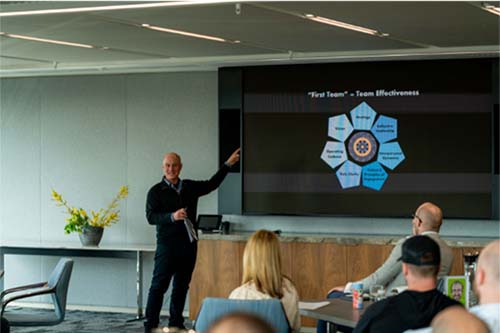

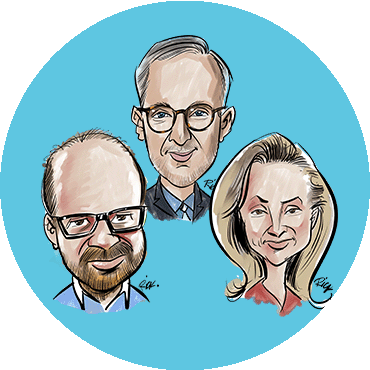
Panel discussion: Board Effectiveness
With Perry Blacher, Laurel Powers-Freeling, Jacques de Vaucleroy
Role
The Board should be balanced not too much challenge, nor too much support. They should hold senior management accountable but not strangle them
Insight
Appoint people for the skill set you need at the time and focus on best fit over “biggest and brightest”. Sub-committees can be useful but separate advisory boards can undermine and over complicate the functioning of the main board.
Size
too big a board is often seen as one of the 5 primary sources of dysfunction. Boards should be no more than 7 people to ensure senior management have a real relationship with all members. Observer numbers should be kept to a minimum to avoid a disproportionate influence.
Efficacy
Appoint a Chair at around Series B to play the role of “ringmaster” or “conductor”. They should set the agenda and herd discussion without being the “decider”. A strategy day every 6-12 months helps align the Board on the building blocks to reach a destination and helps to keep board meetings short.
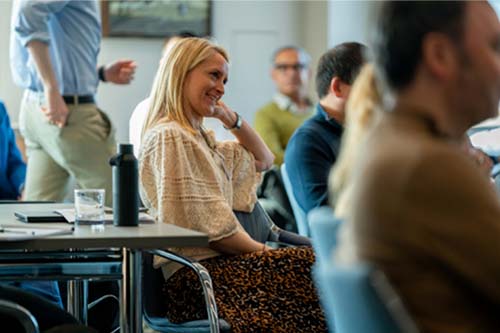

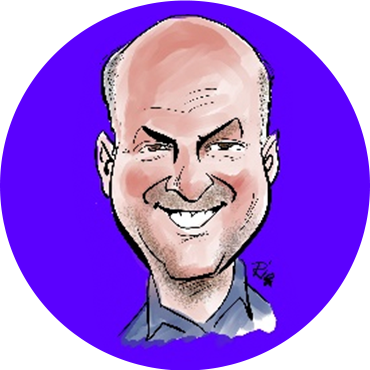
Workshop: Team Effectiveness
With Michael Manzagol
- Team effectiveness depends on collective versus siloed decision making. Great leaders prioritise supporting their fellow leaders or ‘First Team’ over their direct reports and are responsible to their peers more than any individual or ‘second team’
- Ensuring the company strategy is clear and bought into by all team members enables the collective strengths of a team to be fully leveraged
- Focusing on role clarity and operating cadence can ensure team members are accountable and team meetings are a good use of everyone’s time
- Reaching optimal productivity and morale means going through various stages of change from denial and anxiety to frustration and avoidance with real adoption for new working patterns supported by feelings of hope, energy and enthusiasm
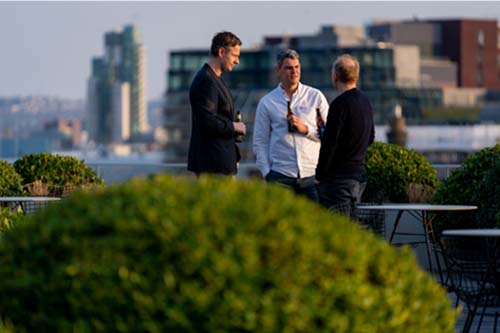
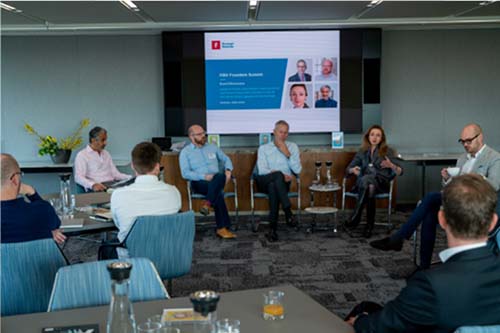
The Art of Disruption
With Sebastian Mallaby
- The Power Law means VCs require just a single home run to return the entire value of the fund to investors: "Each year brings a handful of outliers that hit the proverbial grand slam, and the only thing that matters in venture is to own a piece of them.“
- Venture capital is ‘smart money’ but companies should accept VCs operational and technical expertise as well as leveraging their professional networks to secure financing, talent, market access and more
- Past success is not the main predictor of future success: Europe will catch up with the US in its ability to fund and grow unicorns yet US connections and influence whether through investors, talent or ability to capture market share will continue to be a premium for scale-up companies here

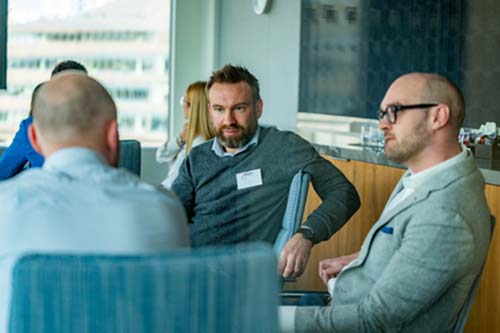
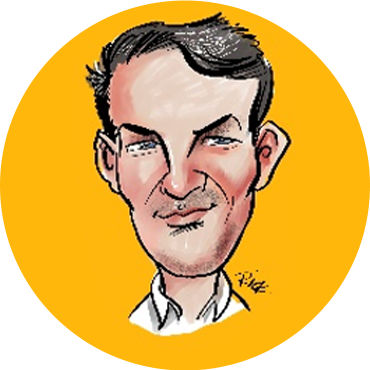
Fundraising and the Path to IPO
With Peter Glover
- Raising capital is a distraction – plan for a 4+ month process and design your processes years before a potential IPO
- Raise when you are at your best – raise money when you are flying and you do not need it
- Investors will always sound interested – build relationships early, diligence interest and know the IC process of each institution
- Welcome negative feedback – always take calls with passes
- Start meeting crossover investors well before you plan to IPO
- A solid leadership bench and succession plan is critical in the eyes of the public markets
- Run yourself like a public business before you intend to become one
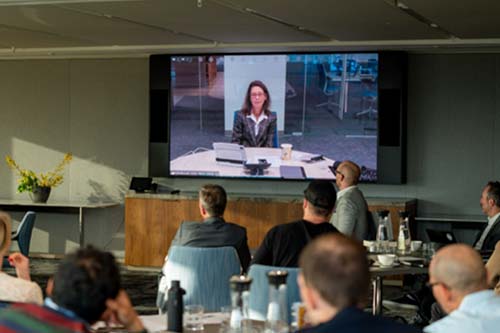
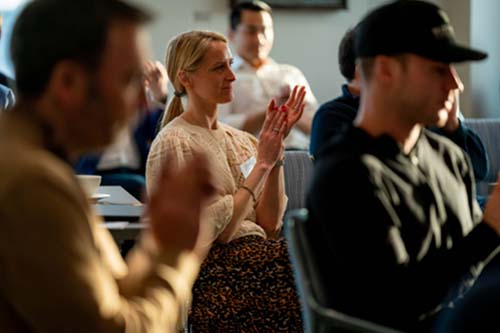

Mindful Growth
Chasing growth without mindfulness with Steve Peralta
- Chasing growth without mindfulness leads to burnout. This can manifest as insomnia, stress, even depression…
- For companies, addressing emotional, psychological and social wellbeing builds resilience, engagement and productivity
- Employees need to trust leadership, feel a sense of belonging, be invested in the purpose and mission of their organisation, feel safe to share thoughts and feelings, believe they are in an environment where they can grow and play to their strengths, have the resources required to meet their demands and experience more positive than negative emotions on a daily basis in order to avoid settling into a toxic culture

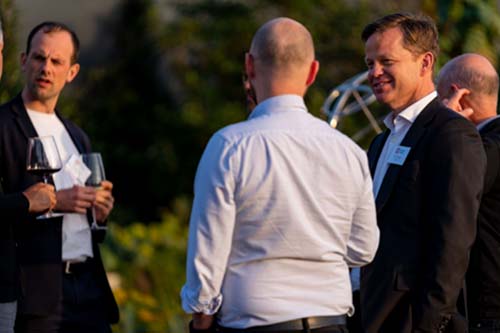

Closing Fireside
With Abigail Johnson, Chair of Fidelity International
- The financial services industry is used to moving only as fast as the slowest part of it because there’s so much interconnection. Staying curious helps to combat that.
- The tendency to chase high value customers in financial services can be dangerous by distracting you from the underlying dynamics of what, and who, is really driving things.
- When setbacks occur, tune into your intuition about what the right next move is. Pivoting isn’t easy but things change so fast that there will always be new opportunities to do things that others haven’t thought of.



